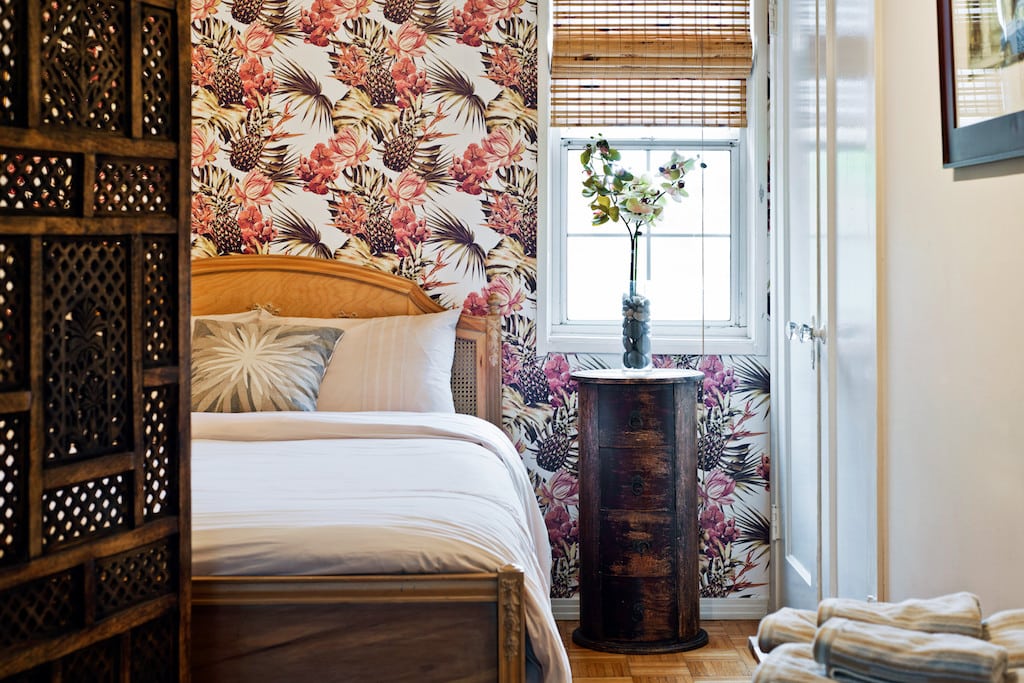Airbnb Plus Is All But Abandoned as a Grand Dream That Never Met Expectations

Skift Take
Airbnb Plus, the company's vision for homes that are certified for quality standards and design acumen, has been all but abandoned two years after launching as support and product teams have been reassigned or laid off, Skift has learned.
The company gave itself a goal of having 75,000 Airbnb Plus listings in the program's launch year, 2018, and the internal goal was well over 10 times that number within a few years, according to a source. But analytics firms AirDNA estimated that there were only 26,000 active Airbnb Plus listings globally in January 2020, and Transparent pegged that figure at 21,159 in April.
Leading markets included the United States, China, Italy, Australia, and the UK.
But the estimates are only a tiny fraction of Airbnb's seven million listings, and well below even the first-year goal.
The mass exodus of Airbnb employees assigned to Airbnb Plus began months ago — even before the pandemic — as many began staffing the company's listing verification program following various house-party debacles, and more recently some were dispatched to work on the new coronavirus-driven cleaning regimens. Airbnb's recent layoffs likewise wiped out remaining personnel assigned to Airbnb Plus.
Get the Latest on Coronavirus and the Travel Industry on Skift's Liveblog
Guests can still book Airbnb Plus listings but there is next-to-no support for Plus hosts, In addition, hosts seeking to sign on to Airbnb Plus are being informed the program is on hiatus.
"Aligned with adjustments we’re making to address and support our community during the Covid-19 crisis, we are temporarily suspending the upgrading of additional listings to the Airbnb Plus program," said Airbnb spokesman Tim Rathschmidt. "As the situation evolves, we will reevaluate and be back in touch with hosts."
Vision Versus Reality
The vision of Airbnb Plus was to establish hotel-like standards for homes that were inspected annually for 100 checklist items, and exhibited quality design and amenities from kitchens stacked with coffee to easy check-in and fast Wi-Fi.
But sources said Airbnb Plus stumbled in part because Airbnb co-founder and CEO Brian Chesky, who's been a design guru since his years as a student at the Rhode Island School of Design, emphasized design over the basics, and the program wasn't scalable, and was poorly implemented. Airbnb declined to comment on that premise.
Hosts likewise balked over a provision that Airbnb Plus listings be exclusive — although it often wasn't enforced. Exclusivity is a nonstarter for many hosts, who need to display their listings on several platforms to maximize profits.
Implementation of the program could be a mess, as well.
"The instinct to create a standard of excellence that guests can trust when they book through Airbnb was sound, but the devil is in the details, and the execution was not up to par," said Dan Driscoll, co-founder and chief operating officer of luxury vacation rental business Boutiq.
Airbnb outsourced host enrollment to a contractor, and there were numerous issues and errors in the onboarding process, which could take months to correct.
"From the perspective of many Airbnb Plus homeowners, it did not appear that the program was being run by people who were themselves Airbnb Plus listing owners, and thus these Airbnb Plus team members didn't fully understand their product and their users," Driscoll said.
Driscoll referred to the short-term rental business as a "messy beast."
"The short-term rental and vacation rental business is not something you can just step into from another tech gig and instantly understand," Driscoll said.
Driscoll still thinks Airbnb Plus could have value.
"Airbnb Plus is definitely a powerful idea," Driscoll said, "and still the best idea for Airbnb to find healthy and consistent margins from its listings. This is critical if Airbnb is to reclaim its peak valuation or surpass it."
One Airbnb Plus contractor, who declined to be identified, talked about a few problems with the growth strategy and culture.
"What didn’t make sense to me was to plan for Plus to blitz-scale," the contractor said. "Not every business should scale. Plus should have grown organically, by recognizing super-hosts who were ready to go live because of their design standards. They were allowing any host to be on Plus, even hosts new to the platform, but then expected them to have high levels of hosting."
The contractor, a woman, also mentioned a toxic bro-culture within Plus which didn't welcome a different point of view from their own.
"A few highly qualified women were driven away because they found the environment to be too unpleasant towards women," she said. "In addition to this, interior design was not respected and it was undervalued. I was appalled by some comments that demeaned the designers on the team. Their work and input was often dismissed."
What Plus Was and Wasn't
The plan's mission was to create almost a sub-brand of listings that had "all the comforts of home, Plus more," Airbnb messaged in one video about the program.
The program was different than Airbnb Luxe, which was a collection of high-end villas and vacation homes brought into the portfolio with Airbnb's 2017 acquisition of Luxury Retreats. Airbnb Plus hosts could be super hosts but that wasn't a requirement.
Still, consumers might have been confused about the distinction between Luxe and Plus.
AirDNA reported that Airbnb Plus listings had advantages, though.
"Occupancy rates are higher, but most of the revenue differential is due to higher average daily rates," AirDNA stated in a blog post in January.
But Skift spoke with a couple of Airbnb Plus guests who said the property in the U.S. Midwest that they recently stayed at had a fancier mirror, and nice pots and pans but overall it wasn't much different than other Airbnb properties they stayed at. They declined to be identified for fear of retribution by Airbnb hosts.
"We couldn't even figure out what the purpose of Airbnb Plus was," one of the guests said. She added that the user booking experience had a "strange grid," and was "tough to filter."
Another source characterized Airbnb Plus as "operationally a nightmare, and couldn't scale."
Consumers can still book Airbnb Plus Homes, but hosts aren't getting any support.
"Practically, Airbnb gave up on it earlier this year," the source said.
Note: This story has been updated to include the view of an Airbnb Plus contractor who had problems with its strategy and culture.





